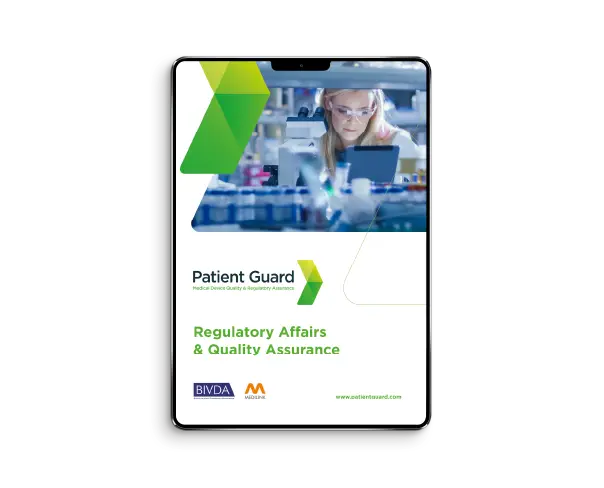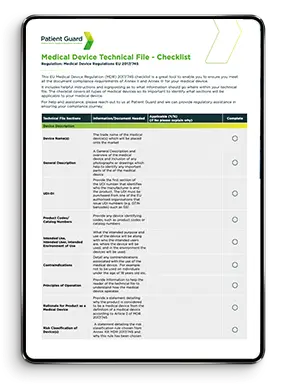Medical Device Drug Stability
Medical Device Drug Stability is essential for ensuring the stability of drugs in contact with medical devices such as syringes, infusion administration sets and infusion administration bags are safe. This article delves into the importance of drug stability testing, the challenges faced, and the methodologies employed to guarantee that the drugs administered through these devices remain safe and effective.
Understanding Medical Device Drug Stability
Drug stability refers to the ability of a pharmaceutical product to maintain its physical, chemical, microbiological, and therapeutic properties throughout its shelf life and usage. Stability testing is crucial to ensure that a drug’s efficacy and safety are uncompromised during storage, handling, and administration.
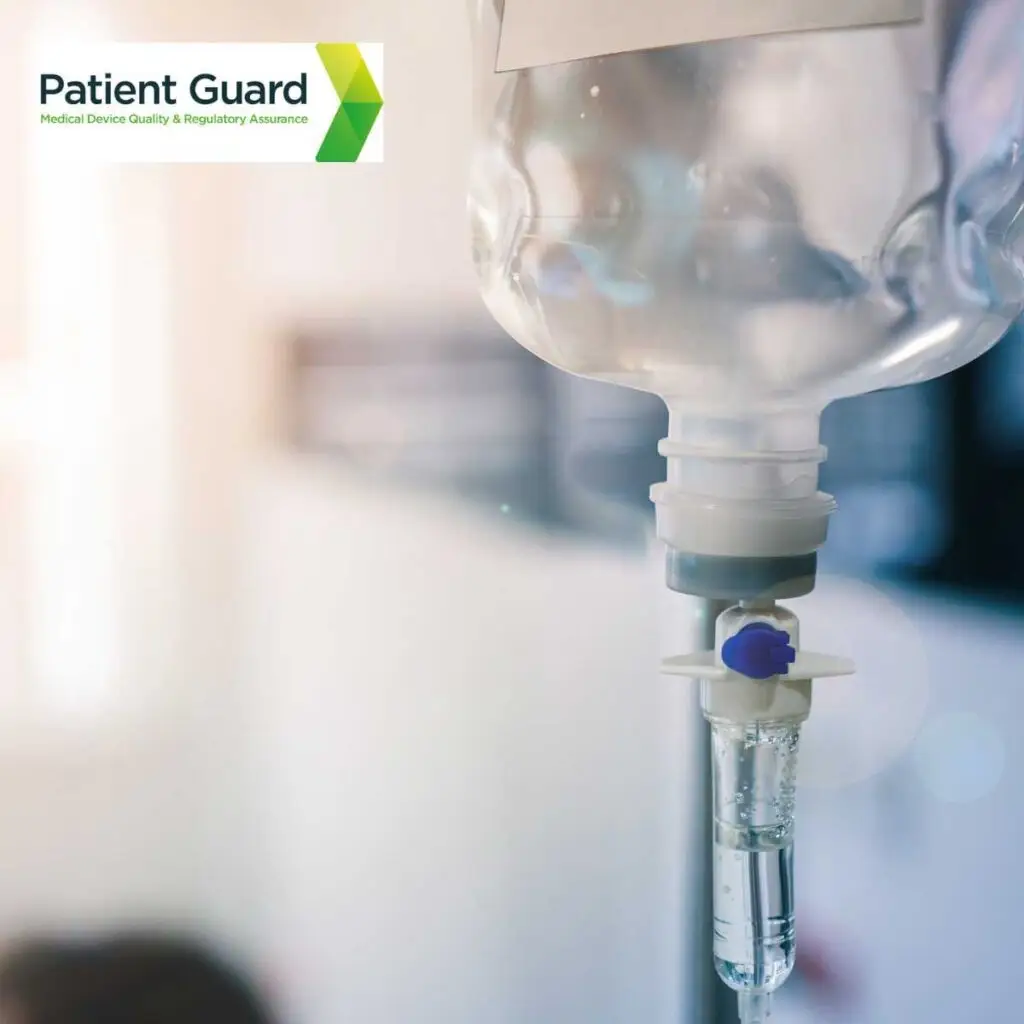
Importance of Stability Testing Medical Device Drug Stability
Medical devices such as syringes, infusion sets and administration bags are integral to delivering medications, especially in critical care settings. These devices often come into direct contact with drugs, which can lead to potential interactions that may affect drug stability. Stability testing in these scenarios ensures that:
Challenges in Medical Device Drug Stability Testing
Testing drug stability in medical devices involves several unique challenges:
- Material Compatibility: Infusion sets and administration bags are made from various materials such as PVC, polyethylene, and silicone. Each material can interact differently with the drug, affecting stability.
- Complexity of Drugs: Modern drugs, especially biologics, have complex structures that can be sensitive to environmental changes and material interactions.
- Simulating Real-World Conditions: Replicating the exact conditions under which the drugs are stored and administered can be challenging but is essential for accurate testing.
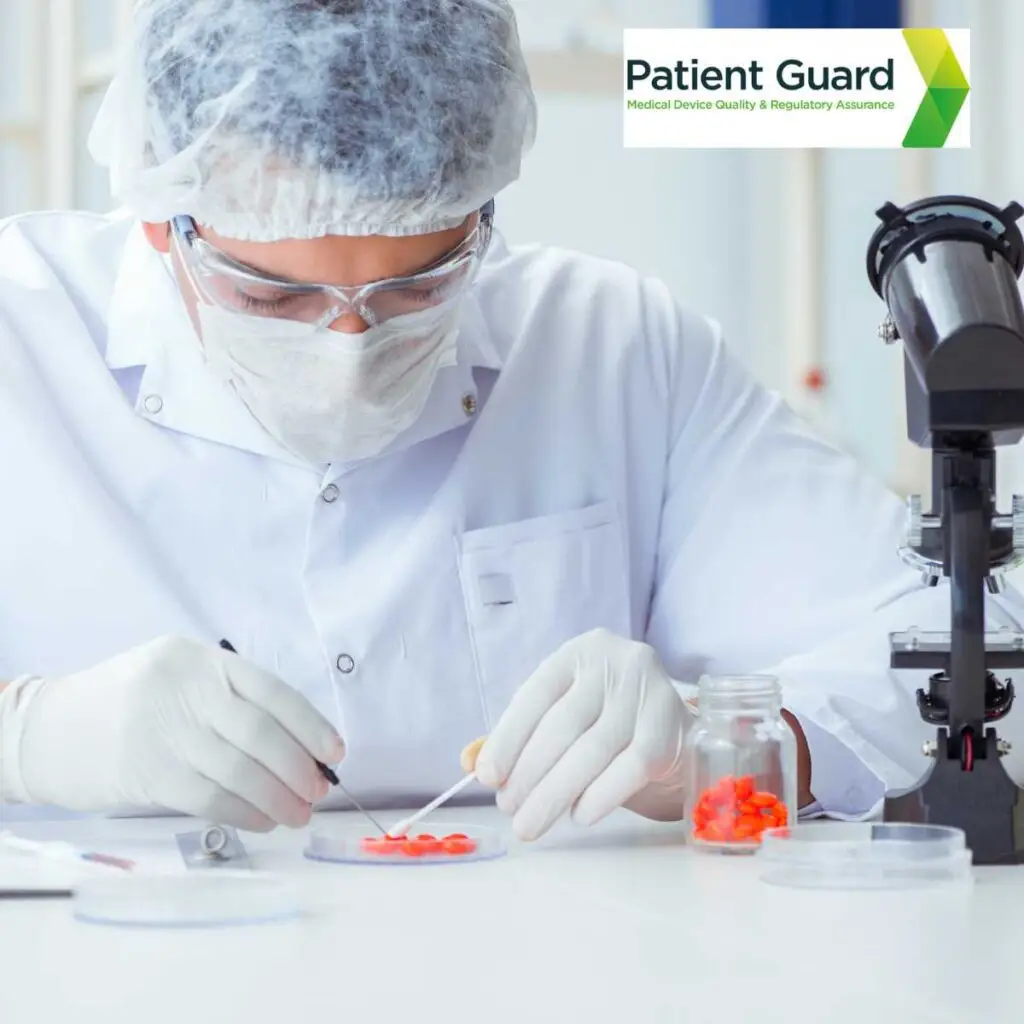
Methodologies for Stability Testing
Several methodologies are employed to test drug stability in medical devices:
1. Chemical Analysis
Techniques like High-Performance Liquid Chromatography (HPLC) and Mass Spectrometry (MS) are used to detect any chemical changes in the drug.
2. Physical Analysis:
Observations for changes in color, precipitation, and clarity help identify physical degradation.
3. Microbiological Testing
Ensuring that the drug does not become contaminated when in contact with the device.
4. Accelerated Stability Testing
Exposing the drug-device system to stress conditions (e.g., higher temperatures, humidity) to predict long-term stability.
Case Studies and Applications
Infusion Sets
Infusion sets are widely used to deliver drugs directly into a patient’s bloodstream. Stability testing for these devices typically involves:
- Assessing Drug Absorption: Ensuring that the drug does not adhere to the inner walls of the tubing, which can reduce the administered dose.
- Chemical Compatibility: Checking for reactions between the drug and the tubing material.
- Sterility Assurance: Ensuring that the infusion process remains sterile and does not introduce contaminants.
Administration Bags
Administration bags, often used for IV fluids and medications, require rigorous stability testing to ensure:
- Material Integrity: The bag material does not degrade or leach harmful substances into the drug solution.
- Compatibility with Various Drugs: Testing a wide range of drugs, including antibiotics, chemotherapy agents, and parenteral nutrition solutions.
- Durability Under Stress: Ensuring the bags can withstand handling, storage, and transport conditions without compromising drug stability.
Regulatory Landscape
Regulatory bodies like the FDA provide guidelines for the stability testing of drugs in contact with medical devices. These guidelines emphasize:
- Thorough Testing Protocols: Detailed procedures for testing drug-device interactions.
- Documentation and Reporting: Comprehensive documentation to support stability claims.
- Post-Market Surveillance: Ongoing monitoring of products in the market to ensure continued safety and efficacy.
Biological Evaluation
The stability of Drugs that are used in combination with medical devices should form part of the medical device manufacturers biological evaluation. Biological Evaluation inline with the requirements of ISO 10993 should include a robust Biological Evaluation Plan, with planned drug stability testing (if no scientific literature is available) to demonstrate that the medical device will not alter the stability of the drug or cause leachable materials from the medical device. This should be followed up with a robust Biological Evaluation Report written by a toxicologist.
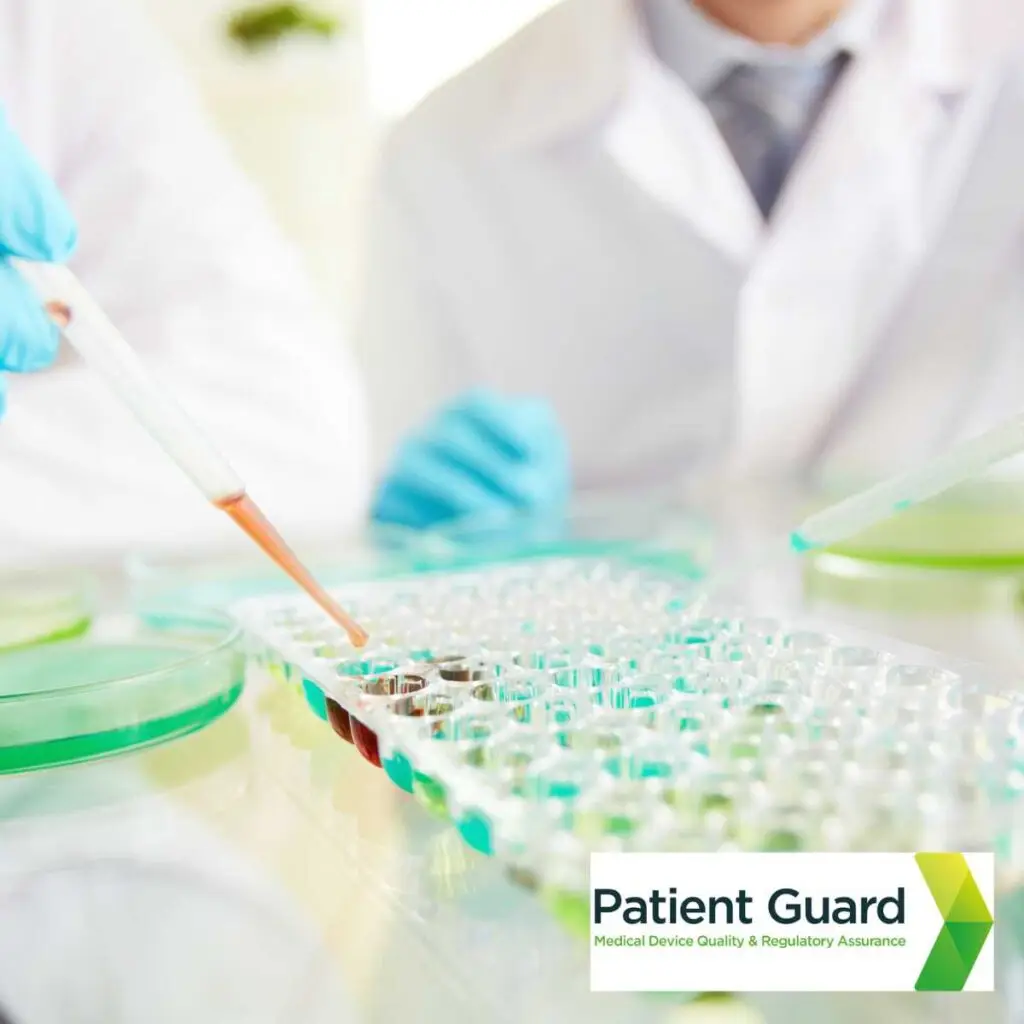
Summary
Ensuring the stability of drugs in contact with medical devices such as infusion sets and administration bags is a critical aspect of pharmaceutical and medical device manufacturing. Through rigorous testing and adherence to regulatory guidelines, manufacturers can ensure that their products remain safe, effective, and reliable. As technology and pharmaceutical sciences advance, continuous innovation and meticulous testing will be essential in maintaining the highest standards of patient care.
Patient Guard Ltd: Your Partner in Medical Device Drug Stability Testing
Patient Guard Ltd offers comprehensive medical device related drug stability testing services, ensuring that all potential risks and regulatory requirements are meticulously addressed. By choosing Patient Guard, customers gain peace of mind knowing that our expert team considers every aspect of medical device safety and compliance in the design of drug stability testing protocols. We pride ourselves on delivering cost-effective and efficient solutions, helping you meet industry standards while maintaining high product quality. Trust Patient Guard Ltd to safeguard your products and, ultimately, the patients who rely on them.
Related Services by Patient Guard:
FAQs
Drug stability testing evaluates how well a drug component in a combination medical device maintains its quality, safety, and efficacy over time. This testing ensures the drug remains stable throughout its shelf life and usage period.
Why it matters: Stability testing is crucial for combination devices like drug-eluting stents, prefilled syringes, and transdermal patches to ensure patient safety and regulatory compliance.
Drug stability testing must comply with:
- ICH Guidelines (e.g., ICH Q1A): Covering stability testing protocols.
- ISO 10993: For biocompatibility assessment of device materials.
- EU MDR 2017/745 and IVDR 2017/746: For devices in the European market.
- FDA Guidance: For combination products in the US.
Key insight: Regulatory requirements vary by region, and manufacturers must meet specific guidelines for global market access.
Stability studies evaluate the following factors:
- Chemical Stability: Ensures the drug maintains its potency and purity.
- Physical Stability: Assesses changes in appearance, consistency, or integrity of the drug or device.
- Microbiological Stability: Verifies the drug remains free from microbial contamination.
- Performance Characteristics: Confirms the device continues to deliver the drug effectively.
Pro tip: Testing under various environmental conditions (e.g., temperature, humidity) ensures robust results.
Stability testing includes:
- Accelerated Testing: Simulates long-term conditions in a shorter time frame.
- Real-Time Testing: Evaluates stability under recommended storage conditions.
- Stress Testing: Assesses the impact of extreme environmental factors (e.g., high heat, freezing temperatures).
- In-Use Stability: Tests stability during actual usage scenarios (e.g., after the device is opened or activated).
Key takeaway: Comprehensive testing ensures the drug-device combination remains safe and effective in all conditions.
Stability testing determines the product’s shelf life, storage conditions, and usage instructions, which must appear on the device labeling. Results influence:
- Expiration Date: The maximum period the drug-device combination remains effective.
- Storage Requirements: Conditions such as temperature, humidity, and light exposure.
- Warnings: Special instructions to prevent degradation (e.g., “Do not freeze”).
Key insight: Accurate labeling based on stability testing results is a regulatory requirement for market approval.
Yes! Patient Guard provides expert support for drug stability testing and combination device compliance, including:
- Designing regulatory-compliant stability testing protocols.
- Coordinating testing with accredited laboratories.
- Preparing technical documentation for CE marking or FDA submissions.
- Assisting with shelf-life determination and labeling compliance.
Why choose Patient Guard: With extensive experience in combination device regulations, we ensure your product meets global standards efficiently.
Resources:
- Medical Device Design and Development
- In Vitro Skin Irritation Testing ISO 10993-23
- Cytotoxicity Testing in Medical Devices ISO 10993-5
- Extractables and Leachables Testing for Medical Devices
- The Biological Evaluation of Medical Devices a comprehensive overview
- ISO 14971 and the Risk Management of Medical Devices
- FDA Guidance

